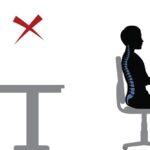You wake up one morning and your lower back is screaming. Was it that awkward twist when you picked up the laundry yesterday? Or is this something that’s been bubbling under the surface for months?
When it comes to back pain, the labels chronic and acute get thrown around a lot—but they’re not just medical jargon. Understanding the difference between chronic back pain vs acute can be the key to finding real relief… or at least knowing when to rest, when to stretch, and when to call in some expert help.
Because let’s be honest: most of us don’t want to run to a doctor for every twinge. But we also don’t want to ignore something that could become a bigger issue. That’s why we’re breaking it all down—clearly, calmly, and with the kind of advice you’d get from a friend who’s been through it too.
✅ Key Takeaways
-
Acute back pain usually hits suddenly and resolves within a few days to weeks.
-
Chronic back pain lingers for 12 weeks or more, often requiring lifestyle changes or ongoing care.
-
Knowing which type you have helps guide treatment—what works for a strain won’t work for nerve damage.
-
Emotional stress, posture, sleep habits, and even fear of movement can impact both types.
-
You don’t have to “just live with it”—there are realistic options to feel better.
🧠 Acute vs Chronic Back Pain: The Core Difference
Let’s start simple.
What is acute back pain?
Acute pain is your body’s alarm system. It comes on suddenly—usually after an injury, awkward movement, or muscle strain. It’s sharp, intense, and often short-lived.
Think:
-
You picked up a heavy box with poor form.
-
You slipped on a wet floor.
-
You twisted wrong during a workout.
Most cases resolve in a few days to six weeks. Rest, heat, gentle movement, and over-the-counter meds usually do the trick.
What is chronic back pain?
Chronic pain is trickier. It sticks around for 12 weeks or longer, often long after the original injury has healed—if there even was one.
It can feel dull, throbbing, or stabbing. Some days it flares up, other days it simmers in the background.
Common causes:
-
Arthritis or spinal degeneration
-
Herniated discs
-
Nerve damage or sciatica
-
Past injuries that never fully healed
-
Stress and poor posture over time
According to the CDC, about 1 in 4 adults report chronic back pain that interferes with daily activities【source: CDC】.
🪫 Acute Back Pain: Short-Term Pain with a Clear Cause
How it feels:
-
Sudden and sharp
-
Stiffness or spasm in the muscles
-
Localized (usually one spot on your back)
-
Improves with rest and time
What helps:
-
Rest (but not too much): Lying down for days can actually make it worse.
-
Heat or cold therapy: Cold reduces inflammation; heat relaxes tight muscles.
-
Gentle movement: Try light walking or stretching once the pain eases.
-
Over-the-counter relief: Ibuprofen or acetaminophen can reduce pain and swelling.
Jen, 34, tweaked her back lifting her toddler wrong. “It was awful for a few days, but heat packs and gentle walking helped me bounce back within a week,” she says.
If pain doesn’t improve after 4–6 weeks, it’s time to dig deeper.
🧱 Chronic Back Pain: The Lingering, Life-Interrupting Kind
Chronic pain doesn’t play fair. It affects your sleep, mood, work, and relationships. It can make you feel trapped in your own body.
How it feels:
-
Persistent or recurring
-
Comes and goes unpredictably
-
Might radiate to your legs (sciatica)
-
Can feel worse at night or during stress
What makes it worse:
-
Sitting too long (desk jobs, driving)
-
Poor posture
-
Anxiety or depression (yes, really)
-
Lack of movement or overly aggressive workouts
What helps:
-
Physical therapy: Strengthens your core, improves posture.
-
Mind-body techniques: Meditation, breathwork, and CBT reduce pain perception.
-
Sleep support: Back pain and poor sleep feed off each other—invest in a supportive mattress and good sleep hygiene.
-
Consistent movement: Swimming, walking, gentle yoga—all low-impact and helpful.
A 2020 study published in The Lancet emphasized that multimodal care—a combo of physical therapy, psychological support, and education—was most effective for chronic back pain relief【source: The Lancet】.
🔄 Can Acute Pain Become Chronic?
Unfortunately, yes.
If acute back pain isn’t managed properly—if you push through it, rest too much, or ignore early signs—it can evolve into a longer-term issue. Your body may heal, but your nervous system can stay “on high alert,” turning pain into a habit.
It’s called central sensitization, and it’s more common than people realize.
“Pain is not just a signal from the body—it’s a complex experience shaped by your brain, your emotions, and even your expectations,” explains Dr. Rachel Zoffness, pain psychologist and author of The Pain Management Workbook.
🧍♀️ How to Know Which Type You Have
Here’s a quick gut check:
| Symptom | Acute Pain | Chronic Pain |
|---|---|---|
| Duration | < 6 weeks | > 12 weeks |
| Onset | Sudden | Gradual or recurring |
| Cause | Injury, movement | Injury, degeneration, unknown |
| Response to Rest | Improves with rest | May worsen with inactivity |
| Mood impact | Temporary frustration | Ongoing stress or depression |
| Treatment | Rest, OTC meds, heat | Multimodal care, lifestyle |
Still unsure? Talk to a doctor or physical therapist if pain lasts more than a few weeks or disrupts your life.
🛌 Your Habits Matter More Than You Think
You don’t need a fancy diagnosis to make progress. Often, the small things you do daily shape your pain more than any single event.
Habits that help:
-
Adjust your desk setup (hello, ergonomic chair)
-
Stretch regularly—even 5 minutes a day matters
-
Get up every 30 minutes if you sit a lot
-
Manage stress (journaling, walking, therapy)
-
Sleep on your side with a pillow between your knees
These changes won’t cure chronic pain overnight, but they can tip the scale back toward comfort.
💡 Real Talk: When to Seek Help
It’s not weak to get help. If your pain:
-
Lasts more than 6 weeks
-
Shoots down your leg
-
Causes numbness, tingling, or weakness
-
Wakes you up at night
-
Stops you from working, walking, or doing basic things
…it’s time to check in with a professional. You might need imaging, targeted therapy, or even just validation that you’re not imagining it.
Back pain is a part of life for many of us—but suffering through it blindly doesn’t have to be.
When you understand the difference between chronic back pain vs acute, you get to take back a little control. You stop fearing every ache and start responding with clarity.
Whether you’re in the middle of a flare-up or fighting a long-term battle, know this: you’re not alone. There’s always a way forward—even if it’s just one small, kind step at a time.
🙋♀️ FAQ: Chronic Back Pain vs Acute
1. How long does acute back pain usually last?
Most acute back pain resolves within a few days to 6 weeks, depending on the cause and care.
2. What makes back pain chronic?
If your pain lasts longer than 12 weeks and keeps returning or interfering with daily life, it’s considered chronic.
3. Can stress really make my back hurt?
Absolutely. Stress tightens muscles and alters how your brain perceives pain, making symptoms worse.
4. Should I rest if my back hurts?
Short rest is okay, but too much rest can slow healing. Gentle movement is key for recovery.
5. When should I see a doctor?
If your pain lasts more than 4–6 weeks, worsens, or includes symptoms like leg weakness or numbness, see a doctor.
6. Is chronic back pain curable?
It depends on the cause. While some cases can’t be fully cured, many can be managed well with the right support.
7. Does posture affect both acute and chronic pain?
Yes. Poor posture can trigger acute pain and worsen chronic conditions over time.
8. Are MRIs always necessary?
Not always. Many back issues don’t show up clearly on scans, and imaging is usually reserved for persistent or severe cases.
9. Can exercise help chronic back pain?
Yes, especially low-impact movement like swimming, walking, or yoga. Physical therapy can also be incredibly effective.
10. Is surgery ever needed for back pain?
Only in severe or unresponsive cases—like spinal instability or nerve compression. Most people get relief without surgery.
If you found this helpful, check out more gentle, smart, and human-first health guides on Upvolta — because your body deserves kindness and clarity. 💛


